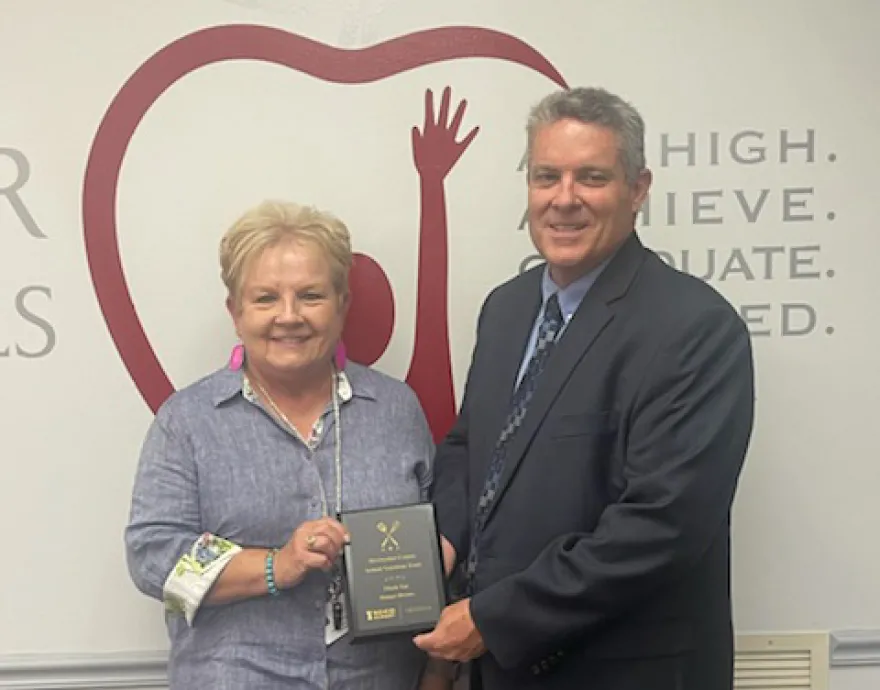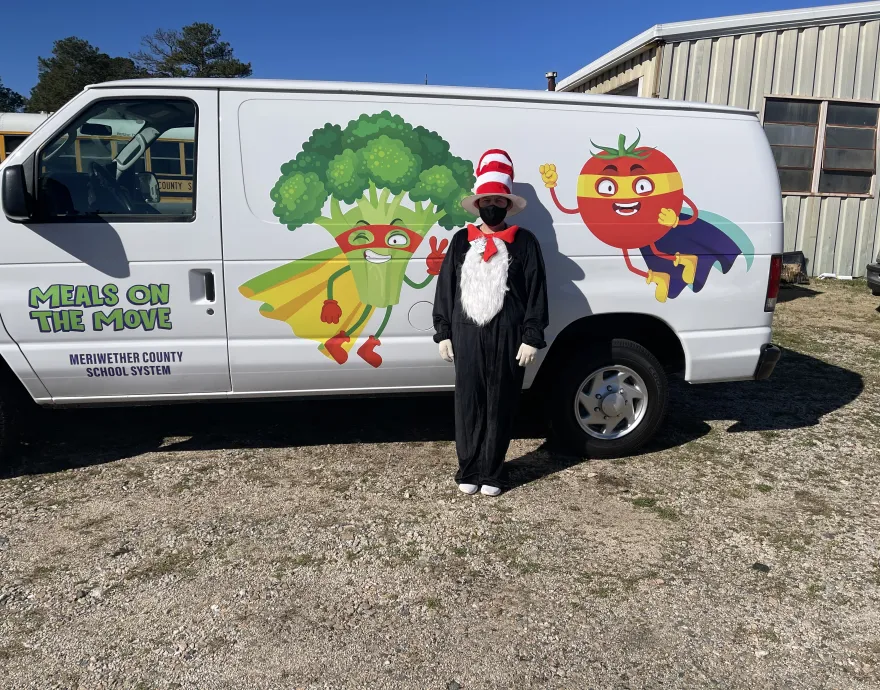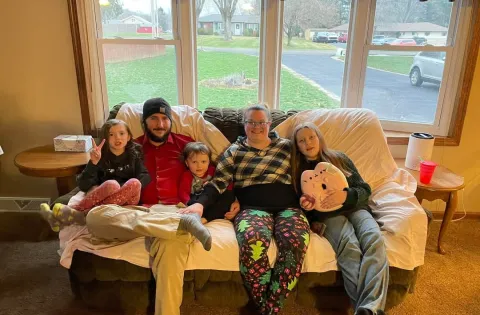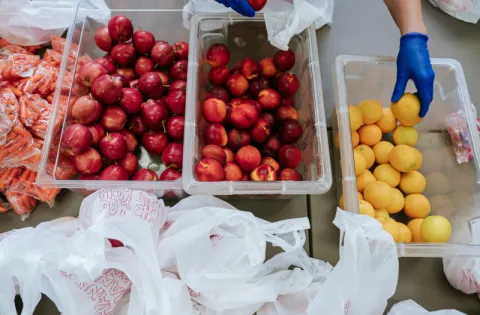Sandra Hudson has seen firsthand the experience of kids with hunger.

Sandra Hudson and Robert Griffin
“It’s very real,” she shares. “When you have children come to school who have not eaten since they left on Friday and, on Monday morning, will eat anything you give them, the problem’s real.”
Hudson has been working in school nutrition for almost 48 years at the Meriwether County Schools in Georgia. Today, she serves as school nutrition director.
Before the pandemic, Meriwether County already experienced high unemployment rates, but after March of 2020 almost twice as many people were without work. At the same time, the rates of infection of COVID-19 were higher than the national average. People were afraid.
Then there was the challenge of feeding kids in a rural community that was very spread out. They had to deliver food to remote areas in the county, often driving over hundreds of miles of dirt roads in inclement weather conditions.
“At the beginning, we were using police cars and everything we had to deliver meals,” said Robert Griffin, superintendent at Meriwether County Schools.
The challenges were high, but for Hudson and Griffin, feeding children was the number one priority.
"That's what we are born to do. We derive a lot of pleasure from what we can do for students," Hudson shared, recalling the commitment of her staff, and how in spite of the fear of COVID, they showed up every day for the kids.
This passion showed in the impact of meal delivery on individuals.
Hudson recalls the story of how through the meals distribution program they discovered a child who was alone at home all day. His mother had been a stroke victim and was unable to take care of him during that time. The school was able to support him and give him the services he needed.
The school nutrition staff are now recognized as heroes. Several agencies, including the state of Georgia, have recognized their labor, and people in their community continue to express how much the meals have meant for the students.
“I wouldn’t even want to try to count how many compliments about the food there are. I couldn’t even count,” shared Griffin.
Hudson’s staff know their work continues this summer and they are ready for it.
Not only will they have the motivation from the recognition of the community, but also they are also better equipped to serve this summer.
Thanks to a No Kid Hungry grant, they were able to purchase three vans that help them reach more children.
“We’re all thrilled,” said Hudson. “And so are the families and the children. They’ve been most beneficial in helping us deliver our remote meals, which we did and we finally got them, and then had them decorated so they’d look appealing to students.”


Griffin added that a good program became great after a very challenging year. And they know their task this summer is essential. He also pointed out the impact of summer hunger on the academic and intellectual development of kids, also known as the summer slide. The pandemic has only aggravated the risk for children.
“There is a learning loss right now,” he shared. “It’s beyond a summer slide. We’re dealing with learning loss, and we’re going to deal with it for two or three years to come.”
This summer, it is crucial that we ensure that every child has access to the food they need. Only this way, they will continue developing their full potential.
Help families find great programs that are distributing free meals for kids like Meriwether County. Spread the word about No Kid Hungry’s texting line where families can text the word “FOOD” or “COMIDA” to 877-877 to find free meals near them. You can also find free meals using our Free Meal Finder Map.
Griffin explained that “people look at school nutrition workers in a whole new light now.” As vaccinations keep progressing and restrictions ease, let’s not forget that 1 in 6 children in the US is still living in hunger. Join us to spread the word about free summer meals.


